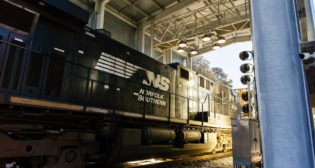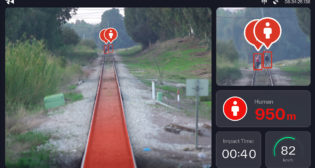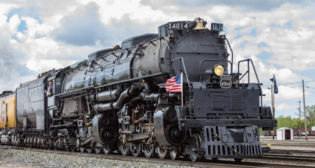
Stop Chasing Customers Away. Or Just Get Out of the Way
Written by Don Pingel, Senior Manager Operating Practices, San Luis & Rio Grande Railroad
I have worked in the operating and compliance departments of various short lines for more than 25 years. There have been times that the marketing and sales department has made promises or deals with customers that were unrealistic or even unattainable, but I agree that the need for “Sales Engineers” is vital to the railroad industry.
In recent years, I helped manage a short line in the Chicago area that handled the switching of industrial park trackage owned and controlled by a Class I. Here are two examples of the Class I not knowing the shipper:

We serviced a small foundry that would get a gondola every couple of months to ship out scrap metal. Because of what it shipped, the car had to be as clean as possible. On one occasion, the shipper waited more than two months to get an empty car. When the car arrived, it was so full of other debris that it had to be rejected. Replacement cars would be en route and then get lost or diverted. On one occasion, a pair of clean cars was found on a RIP track in western Canada and marked up to go all the way to Chicago to be used, and then were diverted to another customer in the Chicago area. Upon reaching a critical point for needing the car, the shipper contacted the “customer service” representative at the Class I, begging for a car. The customer service person asked, “What type of car do you need?” Eventually, suitable gondolas arrived—months after they were first requested.
A similar instance: A recycling company was shipping out large quantities of scrap paper. The warehouse was filling up, and the customer was in need of empty boxcars. The customer service representative asked, “What kind of car do you need?” The obvious answer: “The same cars you have been providing us for the past ten years!” (most of which had the reporting marks of the Class I). Not only was the shipper frustrated with the car supply, it was very difficult getting routes and rates that would help grow the business. It was as if the Class I didn’t want its customer to ship anymore.
In both these examples, the customer had been shipping the same commodity in the same car types, for many, many years. In the case of the scrap metal from the foundry, the scrap went to the same end user every time, on the very Class I providing the cars. If the customer service representative was new and really didn’t know what the shipper needed, that person should have been able to look at the traffic history for the customer, realized they get one type of car, and provided what was needed. Instead, it seemed the Class I didn’t have people that knew their shippers or even tried to look like they knew them.
Sadly, the foundry ultimately changed how it ships: It now trucks the scrap 45 minutes across town to a different short line that has a Class I partner more able and willing to provide gondolas in a timely manner. The siding at its foundry is no longer in service.
So yes, the big railroads need more “Sales Engineers,” who are simply people that know their business, know their customers’ business, and provide quality customer service. In many cases, I think the Class I’s need to just get out of the way and let the short lines do what they do best, but that is whole different topic!



